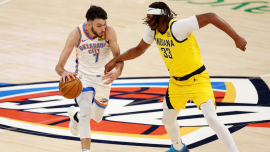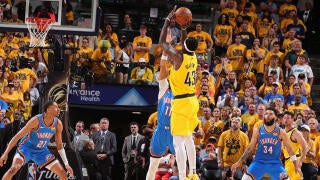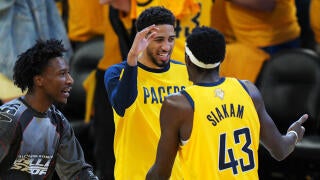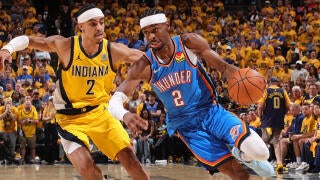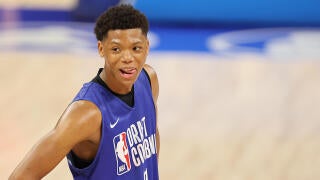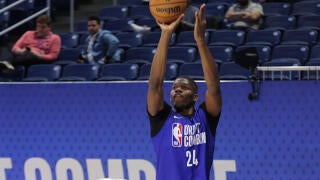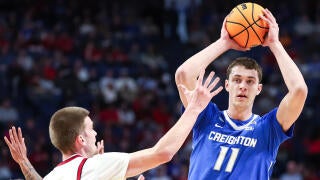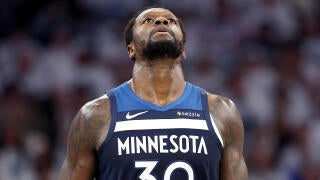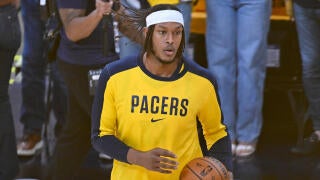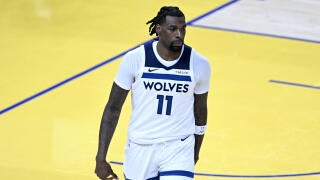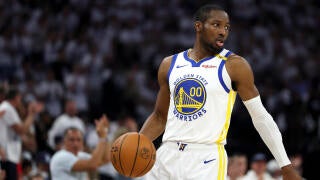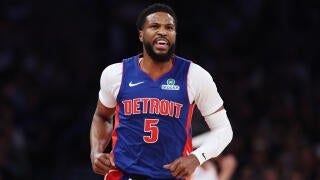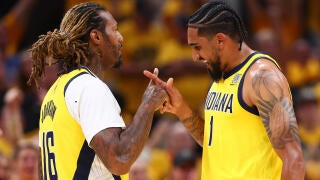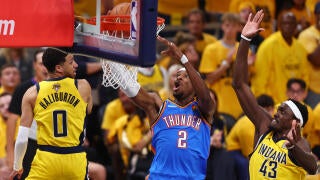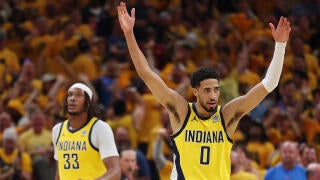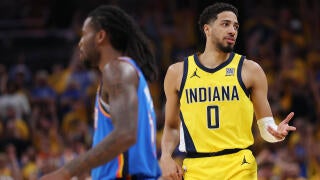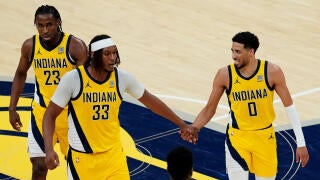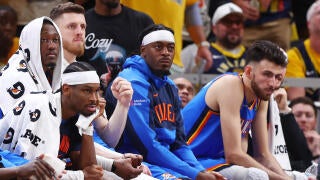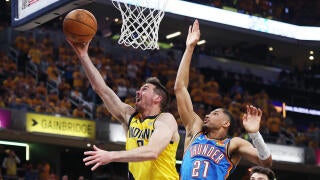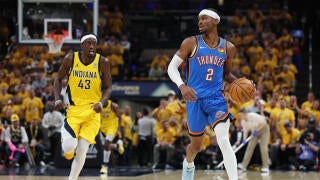The Oklahoma City Thunder are one win away from a title. Led by Jalen Williams' 40 points (14-25 FG, 3-5 3PT, 9-12 FT) in 35 minutes, the Thunder earned a 120-109 win against the Indiana Pacers in Game 5 of the NBA Finals on Monday. Oklahoma City has a 3-2 lead in the series. This is the first time that the Pacers have lost back-to-back games in these playoffs.
Pascal Siakam scored a team-high 28 points (9-15 FG, 3-6 3PT, 7-8 FT) in 33 minutes for Indiana. Shai Gilgeous-Alexander put up 31 points (9-21 FG, 0-3 3PT, 13-14 FT), two rebounds, 10 assists, two steals and four blocks in 38 minutes for OKC.
Pacers star Tyrese Haliburton played through a calf injury. He also played through extremely physical defense by Lu Dort. In 34 minutes, Haliburton missed all six of his field goal attempts. He finished with four points, seven rebounds, six assists and three turnovers.
With Haliburton limited, backup point guard T.J. McConnell stepped up in an enormous way. McConnell exploded for 13 of his 18 points in the third quarter, and he perhaps should have logged more than 22 minutes.
Oklahoma City played its most complete game of the series. It finally got going from 3-point range, and it recorded 12 blocked shots. Chet Holmgren, who accounted for three of those blocks, made his presence felt defensively, especially in the first half.
Now, for Game 5 takeaways:
Turnovers, turnovers, turnovers
Much like the series opener, OKC started the game by making the Pacers, a team that usually takes care of the ball better than just about anybody, cough it up over and over again. The Thunder forced seven turnovers in the first quarter, which allowed them to quickly build a double-digit lead.
Unlike Game 1, though, they did the same thing in the fourth quarter. And this time OKC actually capitalized on those turnovers more often than not. The Thunder scored 32 points off Indiana's 23 turnovers.
"That's the game," Indiana coach Rick Carlisle said. "We've got to do a heck of a lot better there."
Haliburton called the turnover total "a recipe for disaster" and said that it "should be the main area that we focus on going into the next game."
Limiting turnovers is much easier said than done against Oklahoma City's army of elite defenders, but the Pacers simply cannot afford plays like this:
It's not just that the Thunder came up with 15 steals and forced two backcourt violations and a 24-second violation. It's that they took care of the ball themselves. Oklahoma City committed just 11 turnovers, and Indiana turned them into only nine points.
The turnover battle was always going to be a swing factor in this series. In this particular game, it felt determinative: After trailing by as many as 18 points in the first half, the Pacers cut the deficit to two points with eight-and-a-half minutes left in the fourth quarter in large part because they improved their ball security. Immediately after that, Andrew Nembhard threw the ball away and Cason Wallace got an uncontested dunk on the fast break. Carlisle described it as an "uncharacteristically bad turnover."
Shortly after that, Indiana committed live-ball turnovers on four consecutive possessions, resulting in a 10-0 Oklahoma City run that took about 90 seconds and broke the game open.
"We were very disruptive defensively," Gilgeous-Alexander said. "Kind of had them on their heels."
The J-Dub Game
Williams has been a do-everything player for the Thunder all along, but usually that description is reserved for guys who do a little of everything. On the biggest stage of the sport, Williams is doing it all, all the time.
With Andrew Nembhard pressuring Gilgeous-Alexander and denying him off the ball, the Thunder have needed Williams to scale up his playmaking. They have needed him to create something out of nothing late in the shot clock. They have needed him to score at volume, they have needed him to be the primary defender against Pascal Siakam and they have needed him to make all sorts of defensive plays. He has been ready for all of it.
"When he's at his best he's playing with that type of force," Thunder coach Mark Daigneault said. "That was an unbelievable performance by him, just throughout the whole game. He really was on the gas the entire night. Applied a ton of pressure. Thought he made a lot of the right plays. We're going to need a similar type of approach in Game 6 from him."
Gilgeous-Alexander described Williams' performance as "gutsy." It is sometimes hard to believe that he's a third-year player.
"It felt like every time we needed a shot, he made it," Gilgeous-Alexander said. "He wasn't afraid. He was fearless tonight."
Carlisle said that Indiana needed to "get in front of him" and limit his drives. In addition to the shot-making, both Williams and Gilgeous-Alexander managed to get the Pacers in rotation and get the Thunder in rhythm offensively much more often than they did earlier in the series.
"Our offense kind of paced us down the stretch," Daigneault said. "[Gilgeous-Alexander] is such a big part of that because he's in such command of the ball. Dub was doing that tonight, too, which is more against their pressure. Thought those guys played really well in the two-man game. Controlled the clock, controlled the game down the stretch, paced us ahead of them."
An indication that the offense was healthier: Oklahoma City shot 14 for 32 from 3-point range. That is not a huge number of 3s, but it's a huge improvement: In Game 4, the Thunder shot just 3 for 17 from deep.
It was definitely the J-Dub Game, but it should be noted that Aaron Wiggins and Cason Wallace shot a combined 7 for 11 from behind the arc. Daigneault said that they "gave us a massive lift."
A tale of two Pacers point guards
Carlisle said that he subbed Haliburton out near the end of the first half "because he just wasn't moving well." He added that there was a discussion about Haliburton's status at halftime, but, according to Haliburton, there wasn't no question that he'd keep playing.
"I mean, it's the NBA Finals," Haliburton said. "It's the Finals, man. I've worked my whole life to be here and I want to be out there to compete, help my teammates any way I can. I was not great tonight by any means, but it's not really a thought of mine to not play here. If I can walk, then I want to play. They understand that."
Haliburton gave the Pacers what he could, but he didn't look like himself. He didn't get downhill often, which meant that he didn't put a ton of pressure on Oklahoma City's defense. He did manage to create advantages on some possessions, but he wasn't consistently moving with his usual verve.
"He's not 100%, it's pretty clear," Carlisle said. "But I don't think he's going to miss the next game. We were concerned at halftime, and he insisted on playing. I thought he made a lot of really good things happen in the second half."
In contrast, McConnell looked like the best version of himself, particularly in the third quarter. When Indiana desperately needed somebody to get into the paint, get some pace in the game and make the Thunder play against a set defense, he got it done.
"I thought McConnell really changed the game in the third," Daigneault said. "Obviously, that was blatant. We got to do a better job there."
McConnell checked into the game earlier than he usually does in the second half. Early in the fourth quarter, he created a corner 3 for Siakam, but on the following possession he turned the ball over on a traveling violation. With 10:50 left in regulation, Carlisle subbed him out, and he didn't return until the 3:23 mark.
"He was very tired," Carlisle said. "That's why we got him out. I think there was a play early in the fourth where it looked like fatigue had set in there."
If McConnell had checked back in earlier, would Indiana have still committed all those turnovers? It's an impossible question to answer, but if Haliburton is similarly limited in Game 6, McConnell might need more minutes.

